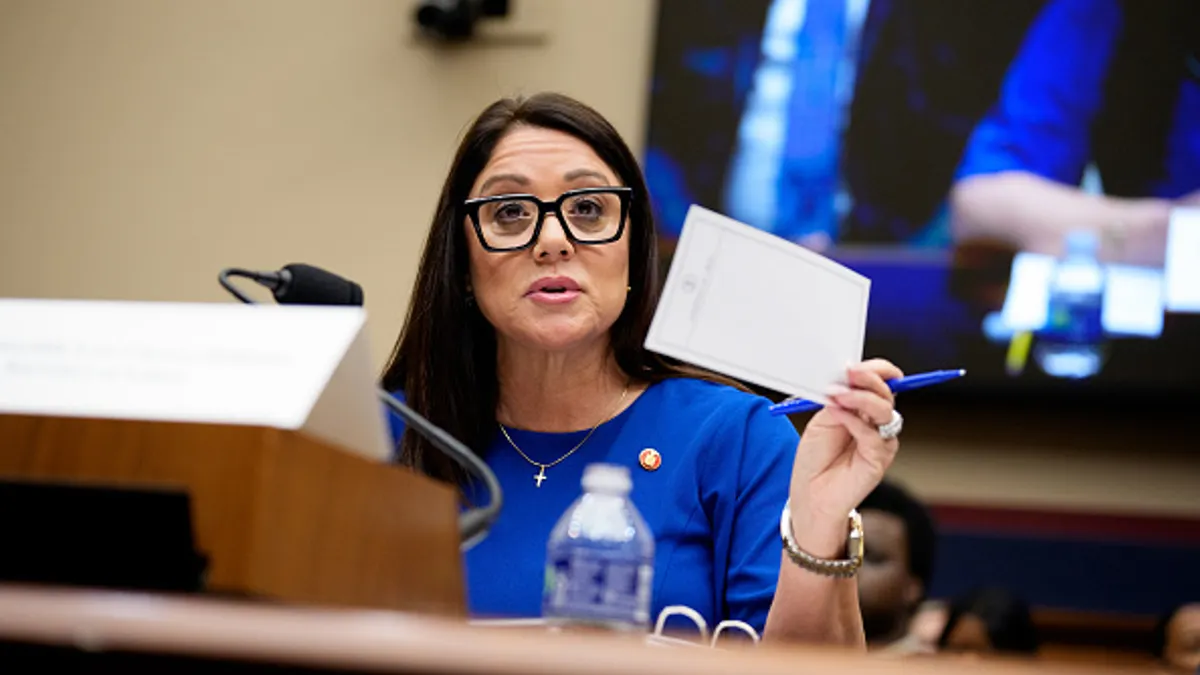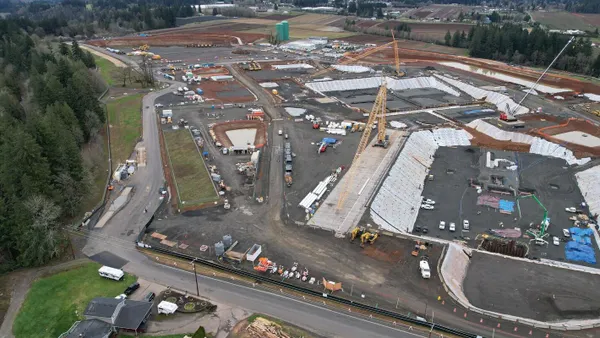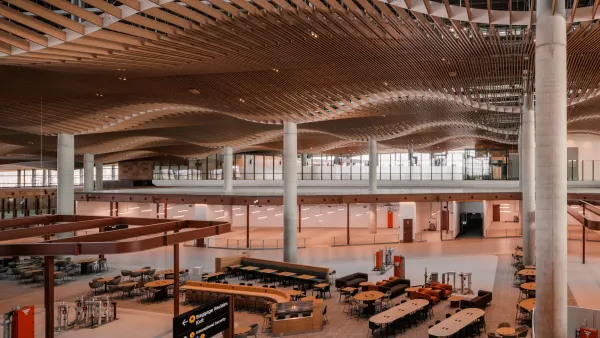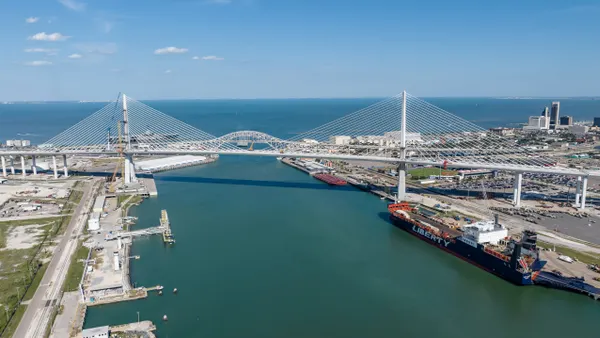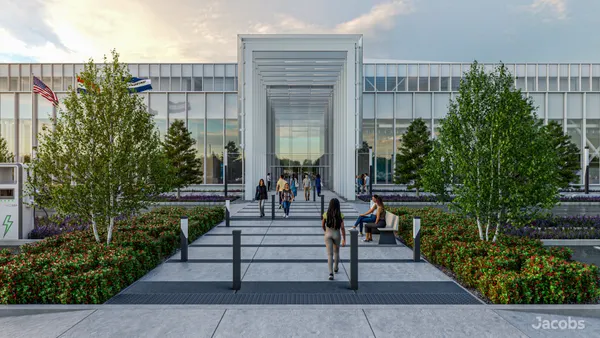Dive Brief:
- During a meeting of the Montgomery County (Maryland) Transportation & Environment Committee, the private consortium building the $5.6 billion, 16-mile Purple Line light-rail system in Maryland told officials that the project is facing a near $300 million cost overrun and could open in March 2023, several months past the state deadline, The Washington Post reported.
- The $300 million is largely for delays related to a federal lawsuit that stalled the project for a year and includes approximately $100 million for construction acceleration costs and late land purchases. Charles Lattuca, executive director of transit development and delivery for the Maryland Transit Administration, said the agency has not yet agreed to pay the $300 million and that Purple Line Transit Partners (PLTP) and the state are still “far apart” on a figure.
- Fred Craig, CEO of PLTP, told the committee that design work for the light-rail system is 85% complete and that progress on both construction and vehicle production is at about 10% done. Despite delays, Craig said PLTP is still trying to find areas in the schedule that can be tightened in order to meet the state’s opening date goal of late 2022.
Dive Insight:
PLTP’s estimate of $300 million in cost overruns is a significant increase from previous projections of $215 million, which The Post reported in January.
Earlier this month, the same federal judge who revoked the project’s approvals back in 2016, an action which led to a year-long court battle and put the light-rail line’s federal funding in jeopardy, dismissed a lawsuit filed by a few individuals and advocacy group Friends of the Capital Crescent Trail against state and federal transportation officials. This is the same group behind the first legal action. However, there is still a third lawsuit against the project outstanding.
In January, the Friends of the Capital Crescent Trail filed suit against the U.S. Army Corps of Engineers, the MTA and the Maryland DOT challenging an Army Corps permit that allows crews building the Purple Line to discharge dredge and fill materials into local streams and wetlands. The group is asking the court to invalidate the permit on the grounds that it is in violation of the Clean Water Act.
The Purple Line isn’t alone in battling cost overruns and legal battles. The price tag for the Southwest Light Rail extension in Minneapolis, for instance, has increased by $145 million to $2 billion, thanks to the cost of delays and increases in the price of materials and labor.
Meanwhile, a federal appeals court is set to rule on a Lakes and Parks Alliance complaint that the Metropolitan Council, which is building the light-rail line, did not wait for the required environmental permits before solidifying its route through the Minneapolis Chain of Lakes region.





